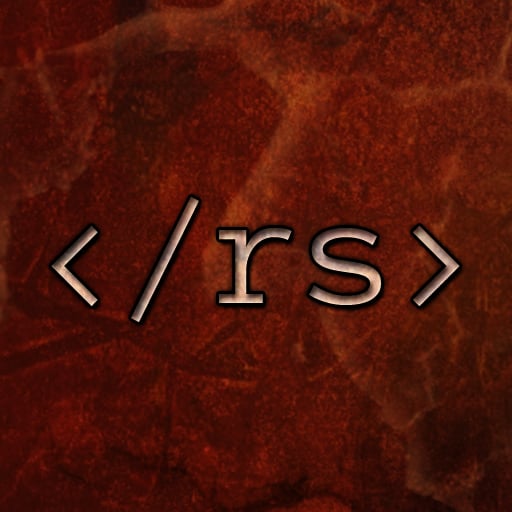In my ever-ongoing struggle to disentangle myself and my family from our corporate overlords I have gleefully dived into self-hosting and have a little intranet oasis available; media, passwords, backups, files, notes, contacts, calendars – basically everything I needed the Big G suite for at one point, I’m hosting locally, and loving it. But Unfortunately… my ISP can be shitty. Normally its’ fine and no complaints, but every now and then the network itself goes down for maintenance for a few hours, half a day, a day. When those outages happen even though I have a battery backup/generator, I’m basically stuck treading water, unable to even listen to podcasts. I’m wondering what the folks here’ have as a contingency plan for these kinds of outages. Part of me is considering pricing out some kind of VPS for barebone, password manager, podcast player, notes etc for outages; but I haven’t dipped my toe into that world yet. Just wondering what folks are doing/recommending/
I have starlink has backup for my DSL. Actually had a 5 day outage over eastern. Was a matter of 5 minutes to book a month of service and I was back online.
I have a 5g home internet backup connection. My primary internet is fiber, so my thinking if there is a cut somewhere it could also affect cable, so I use over the air as my backup.
I’ve had an ISP outage take down the local cell towers too, so keep in mind that they are possibly relying on the same fiber network that you do at home
My local cell tower is connected to the same street cabinet that my wired internet connection is connected to, and the speed of both of them is about the same.
This probably doesn’t help you unless a competing provider is available to you, but I pay for business class internet just to avoid that issue. I pay double over residential rates, and it’s slower, but I get five static IPs and it’s rock solid uptime and latency because I get QoS’d over all my neighbors. It’s been down for more than an hour only twice in 17 years, and both times were due to cable cuts by construction work in my neighborhood. Even on those cuts my service was restored within 4-6 hours. I get better tech support, and a 4 hour response time for ANY tech issue with the service.
It’s one of the few times I’ve seen that “you get what you pay for” rang so true.
Whos your ISP? Sounds like the Virgin package i had but i dont remember it being that much more expensive than their residential package and im sure I had fairly comparable speeds. I had 350 down 20 up for about £50 about 3 years back
You probably won’t believe this after all the good things I said, but it’s Comcast. I usually leave that part out when I tell people my experience because they don’t believe it. But I’ve found there’s a world of difference between the residential and business experience with them. I absolutely would not use them for residential class service after things I’ve heard.
Wait for it to go up gain 🥲. But now I’m curious how people use 4G as second option maybe I will try juat for fun.
All services which I need access to when I’m not home I host on a vps. All services which need lots of storage, I host at home.
Yes seems very reasonable. I like keeping things in silicon I can touch… but I may need to look into a remote solution for some essential services
First off. If Internet goes down I have a http captive portal that do some diagnos, showing where the problem is. Link on network interface, gateway reachable, dns working and dhcp lease. Second, now when it is down, show the timestamp when it went down. Third, phone number to the ISP and city fiber network owner.
Forth. Watch my local RSS feed and email folder. Also have something to watch from Youtube or Twitch game downloaded locally.
Can I get more details on this captive portal? How does it diagnose network issues or what software are you using for the captive portal?
I use very simple software for this. My firewall can use route monitoring and failover and use policy based routing. I just send all traffic to another machine with the diagnosis part. It does ping through the firewall and fetch some info from the firewall. The page itself is not pretty but say what is wrong. Enough for parents to read what error. I also send DNS traffic to a special DNS server that responds with the same static ip address - enough for the browser to continue with a HTTP GET that the firewall will send forward to my landing page. It is sad that I don’t have any more problems since I changed ISP.
Had a scenario when the page said gateway reachable but nothing more. ISP issue. DHCP lease slowly ran out. There were a fiber cut between our town and the next. Not much I could do about it. Just configured the IP static and could reach some friends through IRC in the same city so we could talk about it.
The webpage itself was written in php that read icmp logs and showed the relevants logs of up and down. Very simple.
If everything is local it doesn’t matter if your ISP goes down, it’ll all work fine.
Would a sim backup not solve this? Could be in a router, could be in an old phone
Cries in rural
Sorry could you elaborate? I feel like there’s an obvious solution staring me in the face but I don’t know enough to know what I don’t know.
They mean using something with a cellular radio. A router, or a tethered cellphone.
🤦♂️ That could work! Data sims are cheap in my country, and yeah I might have an old phone I could use as a hotspot. I wonder if I could configure it so that it comes in only if the isp network drops. I’d also want some roles in place so that the data isn’t accidentally scarfed down by a hunger download…
Perhaps there’s a way to do this via hotspot, but I meant tether via physical connection to the router. Some routers do offer failover to secondary networks. Possibly with qos to prevent scarfing, as you put it ;)
Thanks I’ll take a look at the back of the router to see what I/O im working with.
On most consumer level routers the hardware is unlikely to be the restricting factor, but the software could quite possibly not allow that option.
If you could (and are willing to!) flash something like OpenWRT (or DD-WRT, I haven’t used either one in a long time) onto it, then you could potentially unlock the full potential of the router.
Yep long ago flashes OpenWRT Merlin on my router. I’m not sure if there’s a slot for SIM cards though is the problem.
Sim card. Mobile internet. Tmobile, verizon, att in US, vodafone and the like in Europe. My ISP router has a slot for it, some 3rd party ones do, too.
You could also hook a phone up to be a secondary wan in your firewall. I’m assuming you’re running something like opnsense, openwrt or the like, here.
Oh! Yeah I’ve got some openwrt setup on my router, haven’t checked my isp modem for a SIM card slot though I doing recall seeing one. Do you know if there is a way to configure it so that it only handover to the sim if the isp goes down?
Amazing. Thanks
i have cable, in the us, it goes out for awhile probably on a weekly basis. calling them is pointless.
if i really need internet–and i did a couple weeks ago when it happened (i don’t carry an internet-capable phone), my office is less than five minutes away and has dsl. the phone company has proven itself to be far more reliable than cable, even if they are scummy, greedy bastards just like cable and wireless companies.
I have two internet connections - one is fiber and the other is cable. My cable is the backup connection and is a lower tier offering with a 1.2 TB/month cap while my primary fiber is 1gig symmetrical with no data cap. I use pfsense to handle failover in case of an outage.
Lots of beer and a book
Coffee and any of my Chinese handhelds DS/PSP!
USB tethering between home server and cellphone with cheap data plan. Setup iptables rules/default routes on the server and other devices on my LAN, to route traffic to the Internet through the server and the USB modem/phone. Call ISP and wait 3 months for them to unfuck phone/fiber pole trashed by tractor. Keep paying for service while it is down. Keep calm and carry on, at least I got a backup Internet access.
I don’t need to access this server from outside (and it wouldn’t work as the mobile Internet plan uses CGNAT), just to have the laptop or phone on the same LAN once in a while to let Nextcloud sync do its thing (essential files, Keepass database…). I suppose I could set up a wireguard tunnel between the home server and my cheap VPS, and access it from there, I just don’t have the need for it.
My goal is to set up my services so that they can mostly live with limited connectivity. Because either my phone has no internet or my at-home ISP craps its pants, but either one will happen sometime.
So it’s more about being able to gracefully resume than “perfect access”.
In other words: if something stops syncing or I can’t access some specific service that’s mostly acceptable to me. What isn’t acceptable is if the syncing got into a state that needed intervention to fix or one of my services didn’t come back when service is restored.
So in a sense resilience is more important than 100% accessibility.
The small number of exceptions (mostly password saves and other minor bits) I make sure to actively sync to my personal devices so that if my selfhosted stuff goes away I’m not 100% stranded.
I’ve been considering pulling the trigger on a cellular home network as backup. At least in the US you can get cellular home internet service as an add on to your cell phone bill. It would be significantly slower than my primary service, but seems like it would be a reasonable backup to avoid completely losing internet due to maintenance or general bad stability.
so most of the time if your ISP goes down power is also out so cellular service might also fail because ether the power outage or high usage by useres using it as backup maybe Starlink? as it’s not affected by your local power grid
Depends on the country / provider. Many cell companies provide battery backup & even gas generators
Just realised the residential package came with phone and tv so that probably makes up the price difference
I never had a power outage where I live, but internet fails from time to time.










